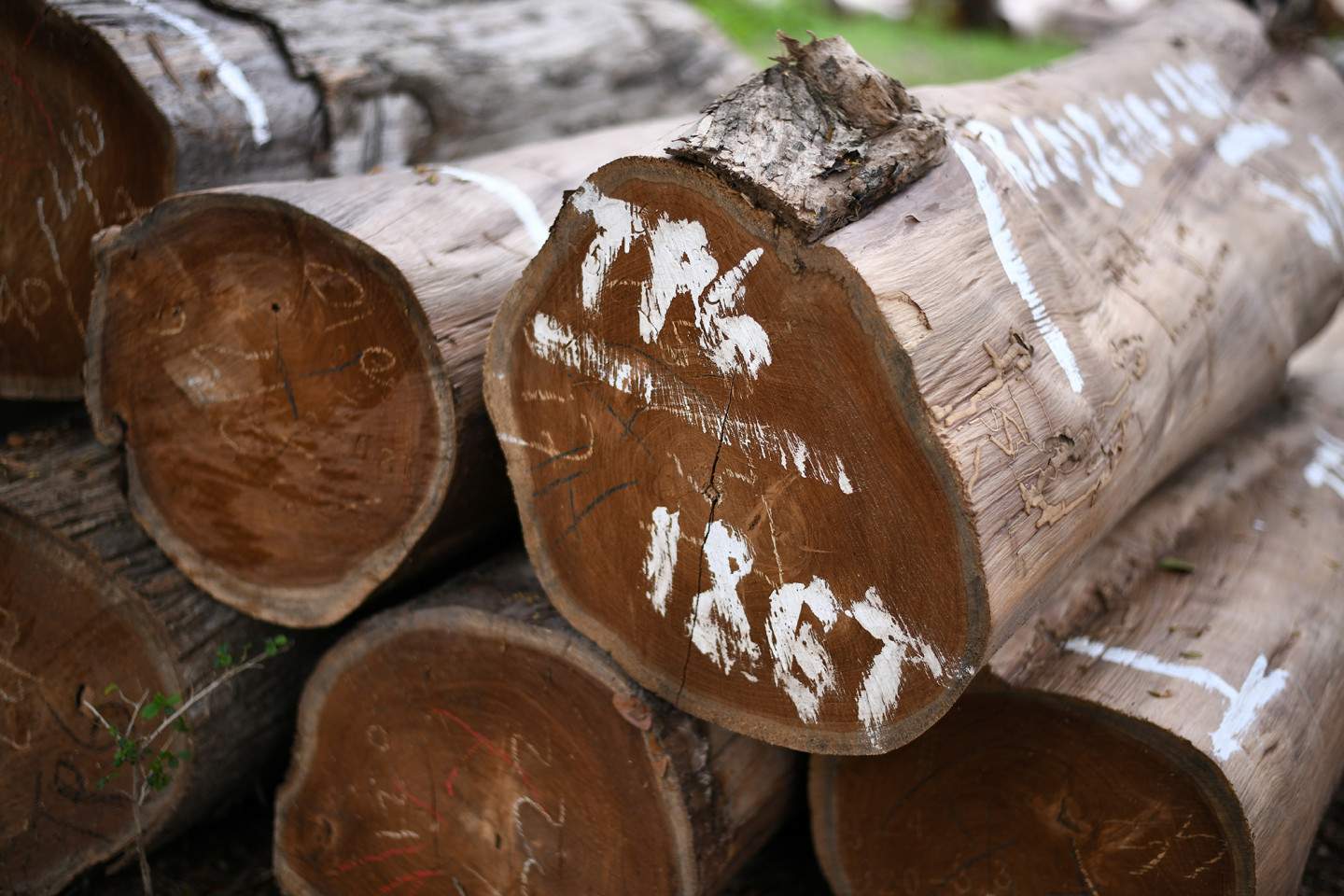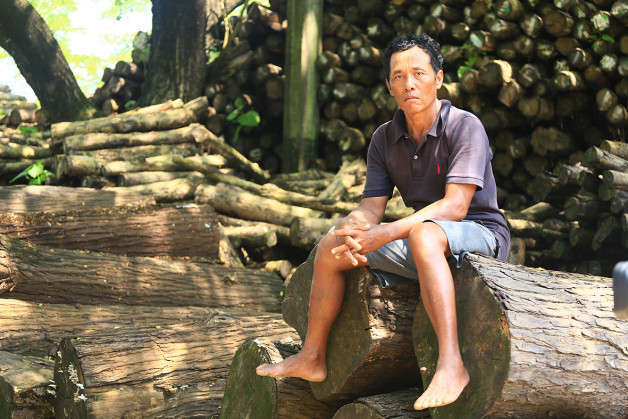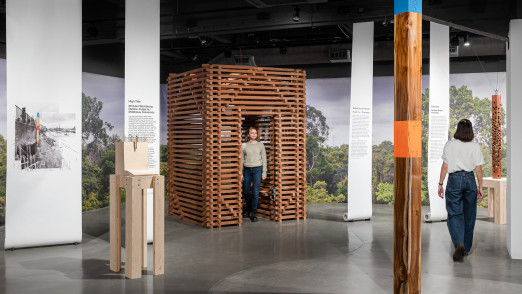This is an extract from the article Timber Transformer that you can download to read in full at the bottom of this page.
The devastation of rainforests is not a simple problem in that its effects are widespread. It is an ecological problem, a climate change problem, an economic problem, a trade problem, a social problem, a governance problem, a community problem, a labour problem, a trade problem.
The UK’s Department of International Development (DIFD) and the European Union, with the Indonesian government as a pioneer, have designed a system to try and repair the damage done to people and trees by the practice of illegal logging called Forest Law Enforcement, Governance and Trade (FLEGT). It’s an approach that could build communities in the forest as well as creating better building around the world.
The power of markets is the simplicity of their accounting of what matters, of profit and return on investment, “they can be deaf to the protests of residents, spokespersons of future generations,” writes Michel Callon, Pierre Lascoumes and Yannick Barthes in Acting in an Uncertain World. “But it’s also what marks their limit.”
Our tale in the following pages concerns trying to create a market in timber products that works for people, plants and the planet. This undertaking by the UK Department of International Development, the European Union and the Indonesian government begins to address the problem of illegal logging that can only be fully grasped through the web of destruction it creates.
It has been estimated around 24 million hectares of Indonesian forest were destroyed between 1990 and 2010 – that is an area approximately the size of the whole of the UK. The impact of this ranges from contributing to climate change on a global scale to damaging people and communities on a local scale. The uprooting of trees through illegal logging creates profound dysfunction in the ecology of people and plants, where biological, economic and social systems are disrupted. Yet to simply say ‘stop the logging’ is often not viable: people who live in the forest need to earn a living from the forest. They can often become the best defenders of the forest in the process and the forest can be managed sustainably and in turn it sustains and develops the community.
In contrast, illegal logging creates an atmosphere and environment of corruption in which the social relations between people become disfigured by the carelessness and cheating that comes with everyday criminality, and distrust in the institutions of the State grows. Value is extracted from communities, both in terms of its natural resources and in terms of deskilling, as local methods and knowledge of working with the forest are erased. People are desocialised and what sociologists call ‘social capital’ – the trust, sense of obligation and co-operation – eroded.
Robert Putnam writes in Bowling Alone that social capital helps us perceive how our fates are linked together, individual problems are recognised as wider problems to be tackled collectively, it’s understood that, “people often might be better off if they cooperate, with each doing her share.” Which is why the International Labour Office produced its Decent Work in Forestry report on work in rural economies – the lives of vulnerable people (especially women and children) are made more vulnerable by hazardous and destructive practices such as illegal logging. Decent Work means people aren’t exploited, where their contribution and skills are valued it also builds social capital. And it is why practices such as Social Forestry have been fostered by DFID and the Indonesian government, where local communities get to manage the forest, and have the rights to it in certain places, using their own methods of silviculture to maintain and regenerate it.
The success of the newly regulated timber supply between the EU and Indonesia will depend on the success of the market for legal wood that governments at both end of the supply lines are helping generate, working with organisations such as the Timber Trade Federation in the UK, and various others.
In Indonesia, it is vital that the network of social capital, Decent Work and the voice being given to local communities takes root.
In Acting in an Uncertain World the writers map the process whereby the ideas or technologies which are successful in creating a market, they are the result of experimentation and they are constructed by many different kinds of people – specialists, laypeople and even non-human actors. In this case a key non-human, living participant in the process are the trees and wildlife of the rainforest. New forms of social relations, in Indonesia, Europe and the UK, can emerge by being more attentive to the fate of the natural world we all depend upon.
Find out about the pillars of FLEGT and read the full article by downloading the pdf below.
Enter the Conversations about Climate Change design competition here.




